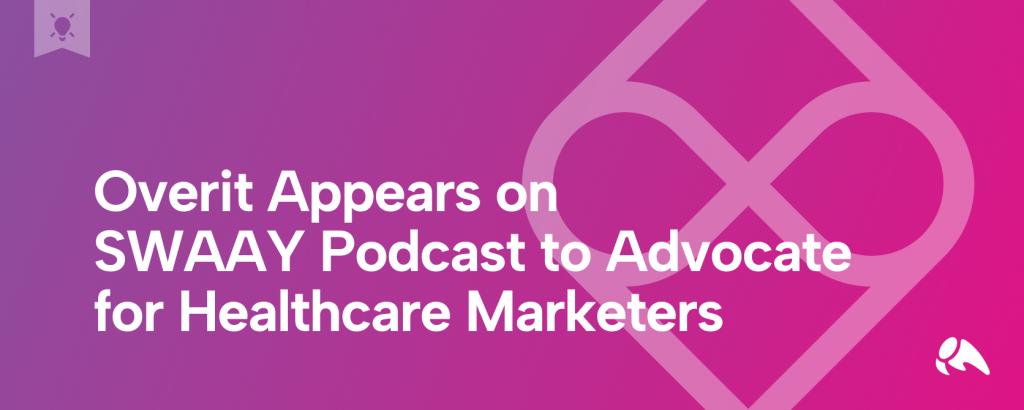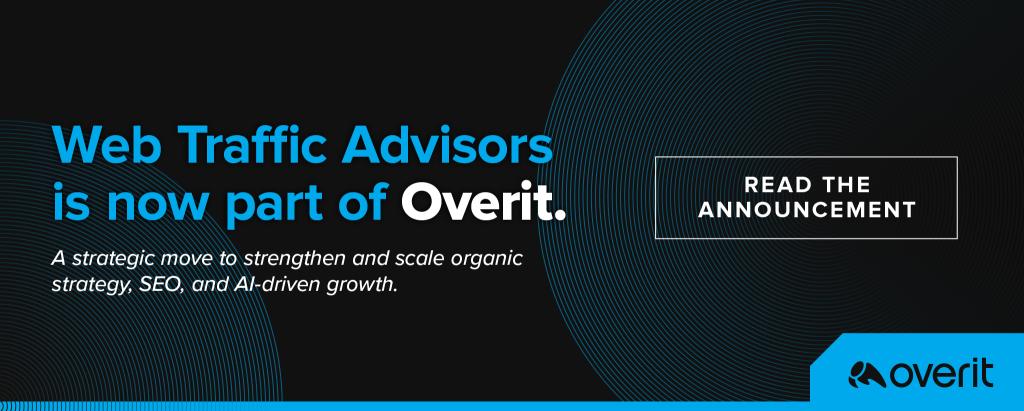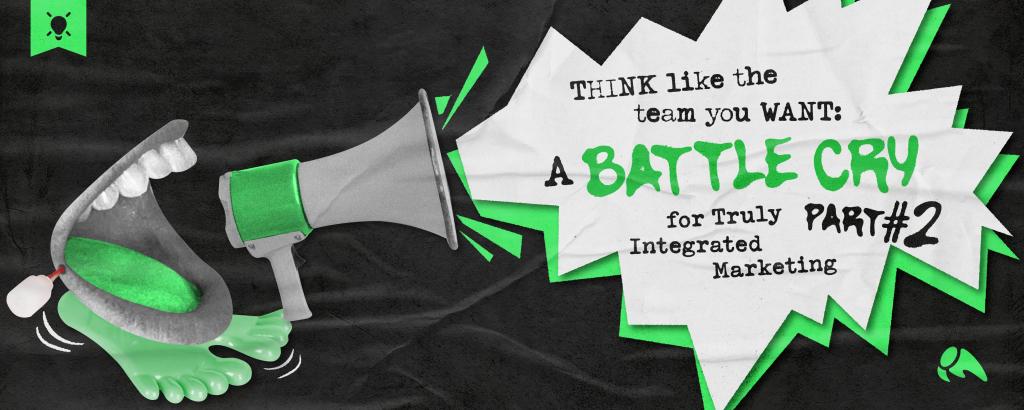Trying to please everyone can be dangerous.
I started Overit 20 years ago and while I think we’ve done a pretty good job providing clients with impeccable service and offering employees a satisfying working environment, there’s always been one problem.
I am a nice guy.
No, this isn’t a humblebrag and I don’t say it with confidence or excitement. Being a nice guy isn’t something I’m proud of. It’s simply something I am.
You’d think being a nice guy was a positive thing. That it’s good for the CEO to want to over-serve and do right by his or her team. But looking back, I can see how my Nice Guy trait has hurt us in business (and me, in my personal life). Actually, it’s not the nice guy part that’s the problem. It gets worse.
I’m a people-pleaser
Experience has shown me that being a people-pleaser isn’t beneficial to my life or business. It means I base my value on other people’s perceptions of me. Sometimes I say “yes”, when I should yell “no”. And I don’t always make the best decisions.
Let me explain.
The People-Pleaser CEO & Clients
In our industry, we strive to provide clients with impeccable service and attention. It’s why they call it a service-based business, after all. I know by providing clients a high level of attention it not only helps their brand, but ours. However, the problem with being a people-pleaser is that sometimes you get taken advantage of. You get a client who sees how badly you wish to please them and, well, they let you. If not monitored against, this can result in a nasty infection. That infection is one many of us refer to as “scope creep.”
You know what I’m talking about. It’s what happens when you go so far beyond the scope of a project, trying to exceed expectations, that you train the client to misbehave. Soon, they not only want more work, at less cost, but they want it yesterday.
Is this an example of a bad client? No. It’s an example of poor leadership. My leadership.
When situations like these have come up at Overit, I know it was a result of the client reacting to the process and previous experiences we had set. We teed up those expectations. Eventually, it came to a point where it was actually impossible to meet their expectations and it got very ugly, fast. The reaction to saying “no” after a long period of being a Yes Man is much worse than if I had set the proper expectations to start.
Avoiding People-Pleasing with Clients
- KNOW YOUR PROCESS.
Stick to your process and only alter it upon well-thought out discussions and clear reasoning. Don’t be a slave to it, but it’s not a process if you’re willing to change on a whim. Changing your process to fit one person or one client will come back to haunt you. Instead, take the critique and go back and discuss it with your team. DO NOT simply jump to please… this could actually drive the problem deeper and you are not doing your client or yourself any service by doing so. - BE CLEAR.
Educate your client on your way of doing business and explain why you do business that way. From my experience, when a client is educated upfront about why you do things, they are typically very receptive and grateful. Even if they do not agree 100%, they will appreciate your proactive and well-thought out approach. They’ll be able to see the reasoning behind the action and develop trust. - BE HONEST.
I’ve talked about the importance of honesty in growing a happy team, but it’s also essential in growing happy clients! If you’re unhappy with something or if there is an issue, discuss it immediately. Sweeping issues under the rug or procrastinating on addressing them will not fix the problem. It will compound it. Take a proactive approach and have those discussions. People respect honesty and this will prevent larger problems from occurring.
The People-Pleaser CEO & Staff
I’m no different than many other CEOs in that I want to create a great environment for my team. I wanted to give them a building that inspired, so I built it. I want them to enjoy coming to work and not feel tied to their desks. I want them to feel creative and free.
I’m a people-pleaser here, too.
And guess what? Just as with dealing with clients, being a people-pleaser with your team can be harmful to your business, to the people and to your culture.
One area where we really wanted to separate ourselves from other agencies was in recognizing and respecting our employees’ lives outside of the office. Working in the digital agency world means tight deadlines, massive workloads and high expectations. We know many competitors keep staff chained to their desks until things get done, regardless of what time it is. We don’t want to be that company. We try really hard to promote a good work/life balance and offer employees an environment where they don’t get burned out, but thrive.
Good plan right?
Well, in theory, yes. However, sometimes our laid back attitude comes back to bite us when younger staff members don’t understand being a good team member and providing excellent customer service means staying til get the job done. Some folks put their foot forward during hard times, while others were not there helping in those times of need.
As a company, this is a failure. It’s a failure in customer service and in production, but maybe even more so in culture and camaraderie.
This, again, was a product of my own doing. I did not clearly establish what is expected of my team. I didn’t go to my department heads and encourage them to lead by example. Instead, I was looking to please. In the end, it was demotivating to those that did put in the extra work, creating friction in the office. They felt taken advantage of. Even if they were rewarded for the extra effort, a failure to see clear leadership will cause even the best employees to become tired and unmotivated.
What was intended with good intentions and to provide a better work environment had backfired. This could have turned into a long-term culture issue but it had to be nipped in the bud.
Avoiding People-Pleasing with Staff
- VET THINGS OUT.
Talk about your expectations and reinforce them. Have a discussion with your team about their role in the success of the overall organization. If people do not know what the expectations are, they cannot meet them. - REFINE YOUR ONBOARDING PROCESS.
Make sure you have thorough verbiage in your handbook, job descriptions and discuss expectations in interviews. - SET THE BAR.
Never ask anyone to do something you would be unwilling to do or have not done in the past. Leading by example is a great way to show what you expect of others.
The People-Pleaser CEO &…me
Of course, my people-pleaser gene plays into all aspects of my life, not just business. I am now aware of this issue and have been making adjustments to avoid being such a people-pleaser. Here are a few items I have found helpful.
Avoiding People-Pleasing in Life
- GET COMFORTABLE WITH “NO”.
Learn how to say NO and understand it does not make you a bad person or boss. - MEET IN THE MIDDLE.
Do not do a 360. Although being a people pleaser has drawbacks do not alter to the complete opposite out of retaliation. - DON’T LIVE IN FEAR.
If saying no pushes someone out of your life or business maybe they were not good a good fit anyhow. - LISTEN TO YOURSELF.
You know the right answer now just do it. - FIND A NEW BAROMETER.
Stop basing your worth on what other people think of you.
I know being a people-pleaser has been a part of who I am and that will never change. However knowing the problems it can cause is something I am very cognoscente of and it has been a fairly easy correction once I was aware. I hope everyone does not hate me for it!







